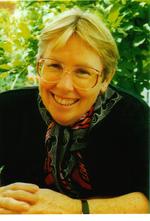
“Always, I will persue melody. This is how I give myself a chance of offering to the world, something unique: something from my own Culture/Age/Land.
Then instinctively, I will chase after one or other from two wildly different interpretations of experience: I willl either recount an event from its sacred-ecstatic aspects (This In Paradisum perhaps). Or I will fox out and meddle with a story’s most unhinged and-theatrical components.
This latter tendency first came to light when I was Composer in Residence with Opera Australia during that company’s opening season (1973) in the Utzon-designed Sydney Opera House. Before the end of this residency, someone proposed that I whip up a concert of my works as a farewell gesture. I needed to bring in some new material, so I set about writing a way-off-centre piece of music-theatre called Marxisms. Nothing to do with Karl, but all about mad-cap Harpo, Groucho, and Chico Marx. What led me so off course? Well, there in the Opera Australia Orchestra was the young and funny lead cellist, Nathan Waks, who bore a distinct resemblance to all three of the brothers Marx. Nathan was also a good sport and Marxisms is still included in my list of works.
Come the close of 1972 and I had just graduated with a B. Mus, 1st class honours from the University of Queensland. I have always been hugely proud of that U.Q. honours degree. Professor Gordon Spearritt was the exemplary scholar and teacher who had made that small department so special for me. He had not long since returned to Australia after spending sabbatical time at Harvard University. Subsequentially, his honours students were set the highest standards. Even so, how did I manage to go from university graduation to a rather pre-eminent position as composer-in-residence with Opera Australia at the Sydney Opera House?
Well, at that same time when I was re-establishing myself back in Geelong, Victoria. I also took in a quick visit to the home of the Australian author, Patrick White. I had decided to ask Patrick for permission to transform his etherial, outback novel, Voss into an opera. There on the front-door steps of Mr White’s home, it was difficult to work out which of us was the more terrified.
Notwithstanding, Patrick gave permission for me to tackle Voss. Thanks to news travelling fast and two Sydney eminences, composer, Don Banks, and Musica Viva’s, Ken Tribe, my placement with Opera Australia became reality. Early in the following year (1974), I was off to Germany to begin my 2½ years on a German Government Student Exchange Scholarship (DAAD). This great bounty had also fallen out of the sky! Suddenly I was off to work with Stockhausen and Kagel at the Cologne Musikhochschule. What amazing times they turned out to be!” – Moya Henderson
Moya Henderson graduated from the University of Queensland with first class honours in December 1972. Her first professional appointment came the year after her graduation when she was appointed resident composer to the Australian Opera during its inaugural season at the Sydney Opera House. She was awarded a DAAD Scholarship and a travel grant from the Music Board of the Australia Council for the Arts, which enabled her to continue her musical education in Germany. While in Germany she studied with Mauricio Kagel and Karlheinz Stockhausen at the Cologne Musikhochscule.
Henderson returned to Australia at the end of 1976 and settled in Sydney, teaching composition as a part-time lecturer at the University of Sydney. She became resident composer in the Department of Music there in 1978 and, over the three-year span of her appointment, worked to stimulate the interest of students in music-theatre, and to encourage them to create their own music-theatre compositions.
In September 1983 Henderson’s work for organ and pre-recorded tape, Sacred Site, was given its first performance in the Concert Hall of the Sydney Opera House by David Kinsela. This work was commissioned by the Sydney Opera House Trust to celebrate the tenth anniversary of the opening of the Opera House, and Henderson believes that it holds a seminal place in her compositional output.
Moya Henderson’s work as a composer has also led her into the field of instrument design, and she has invented both the alemba (a keyboard percussion instrument) and the Tosca Bells – both of which were fine tuned in collaboration with the CSIRO in residencies in the 1980s. Treble and bass alembas have been used several times by the Sydney Symphony Orchestra, and Henderson has continued to work to perfect the instrument’s design.She also developed the ‘noose’ for stringed instruments, which enables the composer to write ‘natural’ harmonics on virtually every note within the range of the string orchestra. The first work to make use of this invention was Henderson’s The Dreaming, composed to a commission from Musica Viva for the Australian Chamber Orchestra.
Moya Henderson has received many commissions from a variety of organisations, performers and ensembles such as the Australian Broadcasting Corporation, Musica Viva, West German Radio, Macquarie University, Helen Noonan, David Kinsela, the Australian Youth Orchestra, and Perihelion. In 1989 she was awarded the Don Banks Fellowship for 1993 and was appointed Macgeorge Fellow with the University of Melbourne’s Music Department for the first quarter of 1995. Henderson’s opera, Lindy (1997), based on the Azaria Chamberlain case, received its premiere by Opera Australia at the Sydney Opera House in October 2002.
| Title | Description | Composer | Voicing | |
|---|---|---|---|---|
 |
In Paradisum |
New to Morton Music – digital copies are now available from RSCM Music Direct (UK) via the Other Countries link. This Antiphon is from the Catholic Requiem Mass at the time when the body is carried out of the Church. The English translation is: This In Paradisum was first sung at the funeral of my twin brother, Peter. I began writing the music the day Peter died. The Geelong, St Mary’s Choir sang this work at Peter’s funeral some days later. For this composer, the ‘angels’ are all those who assist the dying person and their families at these times of sorrow, anguish and loss. © 2017
|